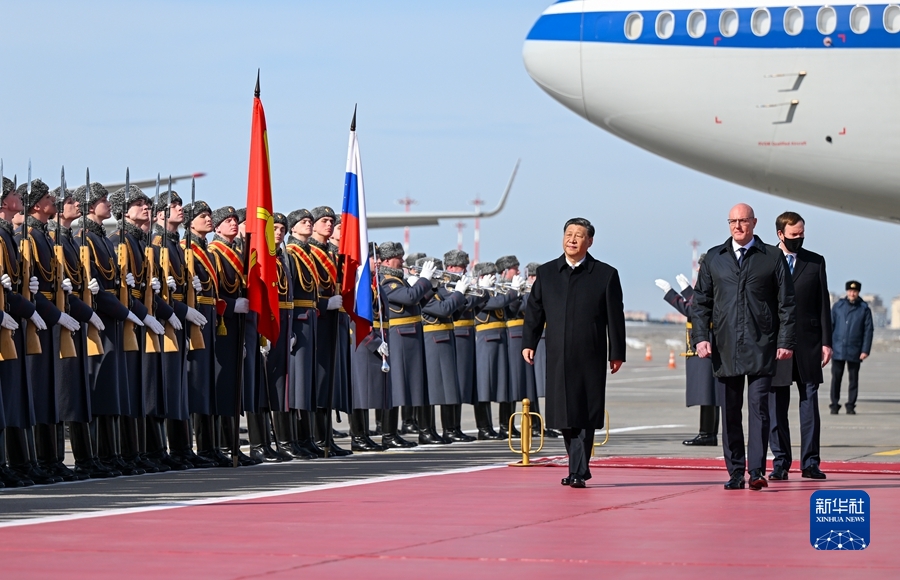
Xi Jinping’s olive branch operation serves own agenda

In
Monday around noon, Chinese President Xi Jinping landed at Moscow’s Vnukovo airport to start his three-day state visit to Russia. By its own account, China has sent its cool-headed mediating dove of peace to Russia.
*****
Xi Jinping’s olive branch operation serves own agenda
Monday around noon, Chinese President Xi Jinping landed at Moscow’s Vnukovo airport to start his three-day state visit to Russia. By its own account, China has sent its cool-headed mediating dove of peace to Russia. President Xi, having become an international diplomatic heavyweight, has called for the restoration of order and stability in Eastern Europe. China’s peace plan and the Iranian-Saudi Arabian success story – in which Xi managed to mediate earlier this month – add credibility to the Chinese desire for peace. War serves no one, including an economically slowing China. Yet Xi’s peacekeeping mission pales next to what he really aims for; an alternative world order in which the Global South, led by China, defines the rules.
It does not come as a surprise that the Chinese president turns to his insurmountable ally. Russia is China’s largest neighbour, rich in natural resources, and led by a like-minded autocrat. The Western sanctions in response to the Ukraine war have pushed Russia even more into China’s arms. With a value of 177 billion euros, bilateral trade peaked in 2022. Russia offers China its oil and gas reserves at a low price and a new 2,600 km gas pipeline through Mongolia to mainland China is under negotiation. Western export restrictions on high-tech products are being circumvented by the Russian import of, albeit less ingenious, Chinese alternatives. The “unlimited Sino-Russian strategic partnership” established on the eve of the Russian invasion of Ukraine remains unquestioned.
This exposes the ambiguity of Xi’s peace plan for Eastern Europe. The Chinese president hails the basic principles of international law; respect for national sovereignty and international peace. While these principles of jus cogens are brutally being violated by the Russian invasion of Ukraine, China refrains from a clear condemnation. A Chinese recognition of the recent arrest warrant issued by the International Criminal Court in The Hague in response to Putin’s war crimes is highly unlikely.
Russian and Chinese interests increasingly collide with the existing western-oriented international principles. Putin and Xi want to exchange the current global architecture, unilaterally designed by the West after the fall of the Berlin Wall, for a multipolar structure in which their state interests are firmly anchored. Whether Xi is willing to supply its neighbour with arms is debatable. An impending talk with President Zelensky shows that Xi is indeed trying to calm things down. But the importance of the economic weapons that China continuously provides to Russia cannot be underestimated. The war in Ukraine, however disruptive and undesirable, gives China, as “neutral” mediator, a strong position of power vis-à-vis Russia and a greater counterweight against the United States.
First published in Dutch in the magazine De Morgen.
(Photo credit: Ministry of Foreign Affairs, the People’s Republic of China)